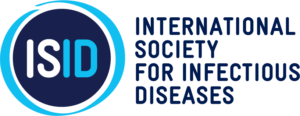About ISID
ISID’s mission is to empower clinical health experts and allied professionals to prevent, investigate, and manage infectious diseases within a One Health context. The ISID is committed to equity, prioritizing support for countries and regions with limited resources and disproportionately high infectious disease burdens. In 2026, it will be forty years since the establishment of the ISID following the merger of the International Congress on Infectious Diseases and the International Federation on Infectious and Parasitic Diseases.
The ISID recognizes the intersection of infectious diseases in humans, animals, and plants, that infectious diseases cross all national and regional boundaries, and that effective long-term solutions require international scientific exchange and cooperation.
The Society is dedicated to developing partnerships and to finding solutions to the problems of infectious diseases across the globe and encourages the collaborative efforts of human health, veterinary health, and environmental health communities working locally, nationally, and globally for the best control and management of infectious diseases.
The Society is a global non-profit 501(c)(3) charitable organization open to all individuals interested in infectious diseases.
The International Society for Infectious Diseases brings together a network of individuals from around the world who share a collective belief that infectious diseases cross all national and regional boundaries and that long-term effective solutions require international scientific exchange and cooperation.
ISID and its members are dedicated to developing partnerships and programs that facilitate the development of innovative solutions to infectious disease challenges around the globe, enabled by an effective and inclusive governance model.
The International Society for Infectious Diseases was created in 1986 by a merger between the International Congress on Infectious Diseases and The International Federation on Infectious and Parasitic Diseases.
The Congress had been established in 1983 as a scientific assembly for the exchange of research and clinical information in infectious diseases open to any interested individual. An ad-hoc Executive Committee for the Congress initiated discussions with the IFIPD that culminated in the 1986 merger of these two organizations. The 1st ISID Congress organized by the newly created Society was held in Rio de Janeiro in 1988.
President
Sally Roberts, New Zealand
Past-president
Paul Tambyah, Singapore
President-elect
Neelika Malavige, Sri Lanka
Members-at-Large
Jaffar Al-Tawfiq, Saudi Arabia
Gonzalo Bearman, United States
Helena Maltezou, Greece
Connie Walyaro, Kenya
Ahmed Aboushady (USA)
Waqas Ahmad (Pakistan)
Elizabeth Ashley (Lao PDR)
Nadia Atiya (Malaysia)
Tayo Babalobi (Nigeria)
Rijal Basista (Nepal)
Ashutosh Biswas (India)
Paolo Calistri (Italy)
Chad Cross (USA)
Doo Ryeon Chung (South Korea)
Robert Colebunders (Belgium)
Devika Dixit (Canada)
Tatiana Drummond (Venezuela)
Laura Gillim (USA)
Kerushini Govender (New Zealand)
Dominicus Husada (Indonesia)
Margaret Ip (Hong Kong)
Lilani Karunanayake (Sri Lanka)
Botond Lakatos (Hungary)
Hakan Leblebicioglu (Turkey)
David Lewis (Australia)
Nada Melhem (Lebanon)
Louisa Messenger (USA)
Jose Moreira (Brazil)
Fingani Mphande (Thailand)
Henry Mwandumba (Malawi)
Armel Tedjou Nouboudem (Cameroon)
Michal Ordak (Poland)
Nicola Petrosillo (Italy)
Akshatha Ravindra (India)
Xiang Ren (China)
Mohamed Rhajaoui (Morocco)
Michael Richards (Australia)
Alfonso J. Rodríguez-Morales (Colombia)
Nir Rudoler (Israel)
Maysaa Abdallah Saeed (Egypt)
Alessandra Scagliarini (Italy)
Sadia Shakoor (Pakistan)
Robert Shey (Cameroon)
Ernest Tambo (Cameroon)
Belay Tessema (Ethiopia)
Zegeye Hailemariam Tessema (Ethiopia)
Chinyere Nneka Ukaga (Nigeria)
George Varghese (India)
Rukumani Devi Velayuthan (Malaysia)
Chadia Wannous (Sweden)
Sean Wasserman (South Africa/UK)
In recognition of their past contributions to the field of international infectious diseases and in anticipation of their future impact on the discipline, these individuals are recognized as ISID Emerging Leaders in International Infectious Diseases.
Umang Agrawal (India)
Oluwaremilekun Ajakaye (Nigeria)
Tinsae Alemayehu (Ethiopia)
Amal Al-Maani (Oman)
Fatima Aziz (Pakistan)
Muge Cevik (United Kingdom)
Abiodun Egwuenu (Nigeria)
Zakiul Hassan (Bangladesh)
Elita Jauneikaite (United Kingdom)
Momo Kadia (Cameroon)
Flora Lutui (Tonga)
Umair Massab (Pakistan)
Nelisiwe Lynneth Mhlabane (South Africa)
David Moore (South Africa)
Vrinda Nampoothiri (India)
Nadia Noreen (Pakistan)
Muhammed Niyas (India)
Laura Oliveira (Brazil)
Gultekin Unal (Turkey)
Tintu Varghese (India)
Dalal Youssef (Lebanon)
Publications and Education Committee
Research Committee
Nomination and Remuneration Committee
The Congress Program Committee
Finance Committee
External Affairs, Policy, & Advocacy Committee
Meet the ISID team.
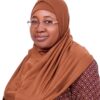
Aisha Abubakar
Manager, Scientific Programs
Nigeria
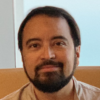
Elkin Bermudez
Manager, Scientific Programs
Colombia
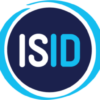
Jarod Hanson
ProMED Chief Content Officer
USA

Linda MacKinnon
Chief Executive Officer
USA

Kathy Nguyen
Senior Specialist, Marketing
USA
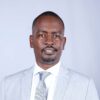
Mohamed Sirdar
Global Program Specialist, AMR
South Africa
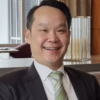
Jason Toh
Events Manager
Malaysia

Christopher Widmer
Chief Operations Officer
USA

Rodrigo Angerami
ProMED Team
Brazil
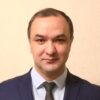
Batyrbek Aslanov
ProMED Team
Russia
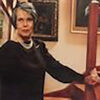
Susan de Heveningham Baekeland
ProMED Team
France

Brent Barrett
ProMED Team
USA
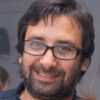
Pablo Beldomenico
ProMED Team
Argentina
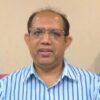
Paritosh Kumar Biswas
ProMED Team
Bangladesh

Rachel Delp
ProMED Team
USA
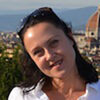
Larisa Ermakova
ProMED Team
Russia
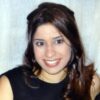
Salma Ferchichi
ProMED Team
Tunisia

Tam Garland
ProMED Team
USA
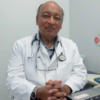
Jorge Gonzalez-Mendoza
ProMED Team
Peru

Dagmar Hanold
ProMED Team
Australia

Marianne Hopp
ProMED Team
Canada
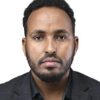
Kassim A. Jimale
ProMED Team
Somalia
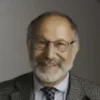
Larry Lutwick
ProMED Team
USA
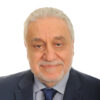
Ghassan Matar
ProMED Team
Lebanon
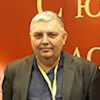
Vadim Melnik
ProMED Team
Ukraine
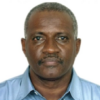
Mubarak Mustafa
ProMED Team
Sudan
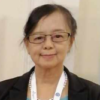
Tin Tin Myaing
ProMED Team
Myanmar
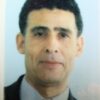
Mahmoud Orabi
ProMED Team
Egypt
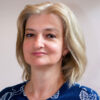
Natalia Pshenichnaya
ProMED Team
Russia
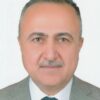
Nazar Shabila
ProMED Team
Iraq

G Singh
ProMED Team
India
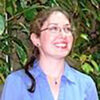
Kathryn Soderholm
ProMED Team
USA
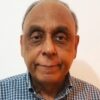
Jaime Torres
ProMED Team
Venezuela
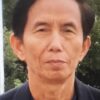
Sok Touch
ProMED Team
Cambodia

Toni Weeks
ProMED Team
USA

Lim Wey Wen
ProMED Team
Hong Kong
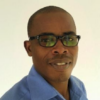
Richard Brou Yapi
ProMED Team
Côte d'Ivoire
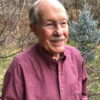
Thomas Yuill
ProMED Team
USA
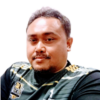
Mohd Asri Yusof
ProMED Team
Malaysia
Governance
ISID is governed by a council, elected by its membership. The Council is organized by geographical region to ensure representation from all the areas of the world. The membership, upon the recommendation of the Council, also approves the composition of the Executive Committee and its officers who are charged with overall responsibility of the Society’s activities and the appointment of an executive director who has day-to-day responsibility for all society business.
Executive Director/CEO
Appointed by the Executive Committee and responsible for the day-to-day running of the Society.
Executive Committee
Responsible for appointing the Executive Director and overseeing all of ISID’s activities, the Executive Committee is composed of:
- Five officers of the Society: President, President-Elect, Past-President, Treasurer and General Secretary, each serving a four year term.
- Four members-at-large, each serving a six year term.
- One representative of the region hosting the next International Congress on Infectious Diseases, serving a two year term.
Executive Committee members are elected by Council Members at biennial General Meetings of the Society held in conjunction with the Society’s International Congress on Infectious Diseases.
Any Council member interested in serving on ISID’s Executive Committee may submit their name, CV and Statement of Interest to the Nominations Committee for consideration. The Nominations Committee draws up a short list of candidates based on nominees’ professional excellence; past and proposed future contributions to the work of the society; and ensuring balanced geographical representation.
The Council of the International Society of Infectious Diseases
Responsible for governing ISID, the Council consists of not more than sixty members each serving a six year term with one-third of Council membership being replaced every two years. Membership is distributed by WHO region to ensure that all regions of the world are represented in the Society’s governing structure.
Council members are elected by Society members at biennial General Meetings of the Society held in conjunction with the Society’s International Congress on Infectious Diseases.
Any member in good standing may submit his or her name to the Nominations Committee for consideration for Council membership.
The Nominations Committee proposes candidates to fill vacancies on the Council based on a nominee’s professional excellence; past and proposed future contributions to the work of the society; and ensuring balanced geographical representation.
The Council serves as both the legislative body of the Society and consulting body for the Executive Committee. Individual members are responsible for:
- Promoting membership of the Society.
- Supporting the implementation of the Society’s goals through the dissemination of information about the Society and distributing Society materials at local and regional meetings.
- Leading local and regional infectious diseases societies, and working closely and collaboratively with these groups to promote the Society and its programs.
- Maintaining the Society’s worldwide representation.
- Representing the Society at scientific meetings.
- Reviewing applications for ISID grant and fellowship programs and/or abstracts submitted for presentation at ISID meetings (two-six hours per annum).
- Participating in the Society’s various sub-committees including Research, Education and Publications; External Affairs, ProMED, Finance, Nominations, or Programs. Sub-committee meetings are usually held “virtually” by Skype/teleconference three times a year. The role of the subcommittees is evolving, and members may be invited to take on additional activities, as determined by the subcommittee chair.
- Establishing and maintaining contact with possible sources of funding for the work of the Society and its meetings such as foundations, government agencies, and the pharmaceutical industry.
Note: Any fundraising activity on behalf of the Society must be coordinated through the ISID office in Brookline, MA, USA.
Council members are also encouraged to:
- Attend the International Congress on Infectious Diseases and to submit abstracts to the Congress. The Society will waive the registration fee of Council members but cannot guarantee any financial help to assist with participation.
- Contribute and solicit articles and other information (including scheduled events) suitable for publication in the International Journal of Infectious Diseases.
Note: Council members receive no compensation for their efforts on behalf of the Society.
